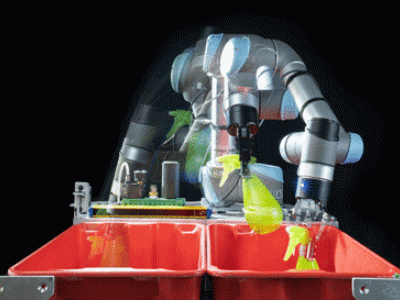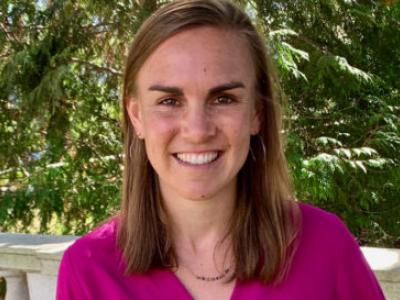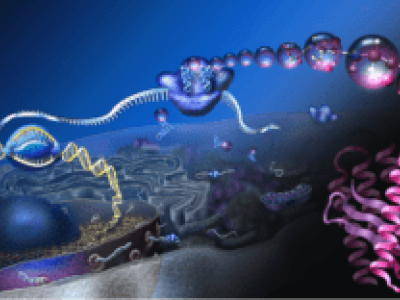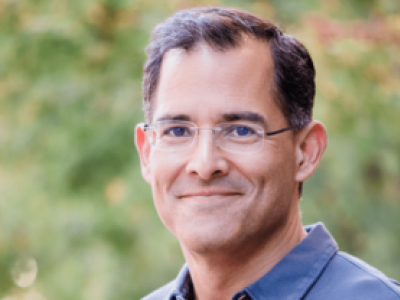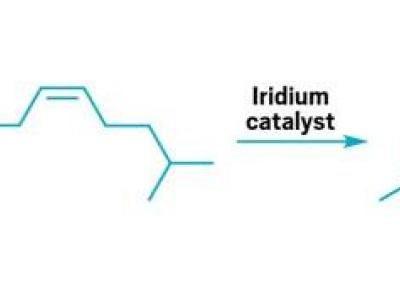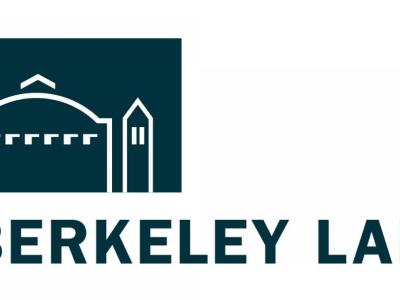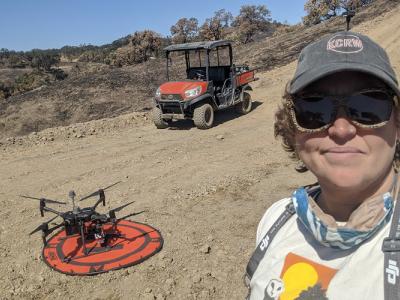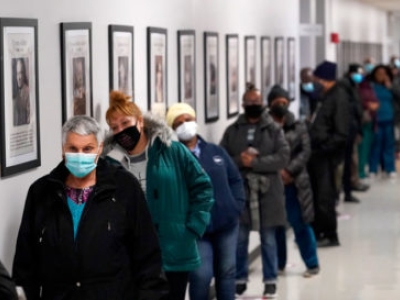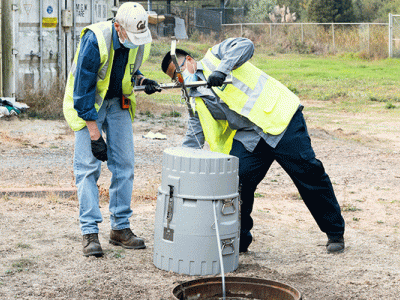The last decade has been marked by a series of remarkable discoveries identifying how the universe is composed. Currently it is understood that the mysterious substance dark matter makes up 85% of the matter in the universe.
Research News
Learn more about UC Berkeley's researchers and innovators.
Showing 1137 - 1152 of 3459 Results
In the past year, lockdowns and other COVID-19 safety measures have made online shopping more popular than ever, but the skyrocketing demand is leaving many retailers struggling to fulfill orders while ensuring the safety of their warehouse employees.
More than two weeks have passed since Election Day in the United States, and though former Vice President Joe Biden emerged the winner after a few days of uncertainty, the controversies over legitimacy continue to provoke fury among President Donald Trump and his allies.
Cara Brook, a UC Berkeley researcher whose work on bat viruses has taken on new urgency with the rise of COVID-19, is one of five recipients of this year’s L’Oréal For Women in Science fellowships.
Madeline Zoltek, a graduate student in the Schepartz Lab at QB3-Berkeley, explores how a new Center for Chemical Innovation is harnessing the chemistry of a living cell to design novel chemical polymers.
The gap in life expectancy between disadvantaged and privileged Americans has widened over the past half-decade, but so has the gap between the most affluent Americans and their peers in other prosperous nations, according to a new UC Berkeley study.
As it has in many states, President Donald Trump’s campaign questioned the outcome of the election in Georgia, where Joe Biden has a lead of over 14,000 votes, too close for Georgia Republican Secretary of State Brad Raffensperger to call.
This fall, ChEnected is introducing readers to the recipients of AIChE’s 2020 Institute and Board of Directors’ Awards, which are AIChE’s highest honors. Recipients are nominated by the chemical engineering community and voted on by the members of AIChE’s volunteer-led Awards Committee. These awards recognize outstanding achievements and world-class contributions across a spectrum of chemical engineering endeavors.
Alkylamines are one of the most useful compounds in a chemist’s bag of tricks. Pharmaceuticals, agrochemicals, and polymers often contain these functional groups.
Deb Agarwal, head of the Data Science and Technology Department in the Computational Research Division, and Kathy Yelick, former Associate Lab Director for Computing Sciences, will be presented with the Berkeley Lab Citation at Lawrence Berkeley National Laboratory’s 2020 Director’s Awards at 3 p.m. on Thursday, November 12.
In the six weeks after the San Francisco Bay Area instituted the nation’s first shelter-in-place mandate in response to the growing COVID-19 pandemic, regional carbon dioxide emissions dropped by 25%, almost all of it due to a nearly 50% drop in road traffic, according to new study from the University of California, Berkeley.
Fierce battles continue in the Nagorno-Karabakh conflict that has killed at least 1,000 people, and possibly many more. The fighting between Armenia and Azerbaijan threatens to destabilize the South Caucasus region, in what has been one of the world’s most protracted wars; three cease-fires have already collapsed since hostilities flared at the end of September.
August wildfires burned tens of thousands of acres in seven UC natural reserves, including a quarter of UC Berkeley’s Hastings Natural History Reservation in Carmel Valley.
UC Berkeley scholars awoke Wednesday, Nov. 4 to signs of a deeply divided U.S. electorate, and no blue wave on the horizon. Despite a surge in early voting, ballots were still being counted in several battleground states. As of noon that day, the race between President Donald Trump and his Democratic challenger Joe Biden remained too close to call.
Demographic change is transforming the California political landscape, with rising numbers of younger Latinx and Asian American voters identifying mostly as independents and Democrats, according to a new report from UC Berkeley’s Institute of Governmental Studies (IGS).
Since the discovery that people infected with COVID-19 often shed the virus in their feces, scientists around the world have scrambled to spot signs of the virus in the stuff that we flush.
However, detecting tiny virus particles amid the wastewater that flows through our sewage pipes — which includes not only toilet water, but sink water, shower water and everything else that goes down a drain — is no easy feat.


